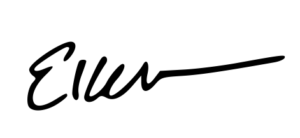Learning As We Go
By Ellen Friedman
When Compton’s board adopted a new mission statement in December of 2011, some of the first questions we asked ourselves were, “What does this actually mean?” and “If we start from this mission, how can we develop a program that will help to advance social and environmental change?” We wanted to understand whether the shift in emphasis, and our desire to focus on strategies (transformative leadership and courageous storytelling) instead of issues, would actually be helpful, and we wanted to learn how folks who used language that seemed similar to that of our new mission turned those abstract ideas into meaningful practice.
We decided to start by talking to people who were doing work that seemed like it might be a fit for what we heard our board saying. The paper, “Transformative Leadership in Practice,” is the result of our conversations about these questions with 28 grant partners and colleagues. We held three lunch conversations this spring with a diverse group of people—folks who work on a range of issues, hold a variety of organizational roles, and have differing relationships with the Foundation—and we listened. Facilitated by Tom David, these discussions illuminated opportunities, challenges, and words of wisdom for Compton’s board as we embark on the journey to implement the new mission.
While there were many “ah ha” moments in the conversations, one of the big ones for me was the request of our participants that we “walk our talk:” that we model the kind of leadership and storytelling in which we are asking our grant partners to engage. Uh oh! I wasn’t sure this would be easy. In fact, I was pretty sure it wouldn’t be easy. Fair play, though—what our board was asking for in terms of change in the world probably wasn’t going to be easy, so the least we could do was start at home. What we heard in those discussions was that walking our talk would mean operating with transparency, humility, and a deep commitment to honoring relationships. It would also mean making our transitions and learning evident to those within and outside the foundation in more or less real time.
In addition, participants encouraged us to work within the philanthropic field to advance riskier grantmaking focused on failing quickly as a way to be more effective in the long run, to promote ‘open source’ grantmaking that would share ideas much more broadly, and to advocate for support for networked movement-building aligned around long-term vision. Finally, they asked us to make practical changes to our grantmaking procedures in ways that would build organizational capacity and would allow grantees to respond quickly to changing contexts for their work. As our first efforts, more than 50% of our 2012 grants have been made as general operating support grants—a way to invest in the whole of an organization’s work, which enables our grant partners to operate in a more holistic fashion—and we are starting this blog to offer a peak into our internal thought processes.
The conversations left us with much food for thought and have stimulated important conversations within and among Compton’s staff and board. We hope that this kind of conversation will continue, both internally and externally, because we know that we all do better when we think together and actively dissent and debate the right course forward. We are sharing this paper in order to invite you into our process. We look forward to hearing from you!
Onward,

Ellen